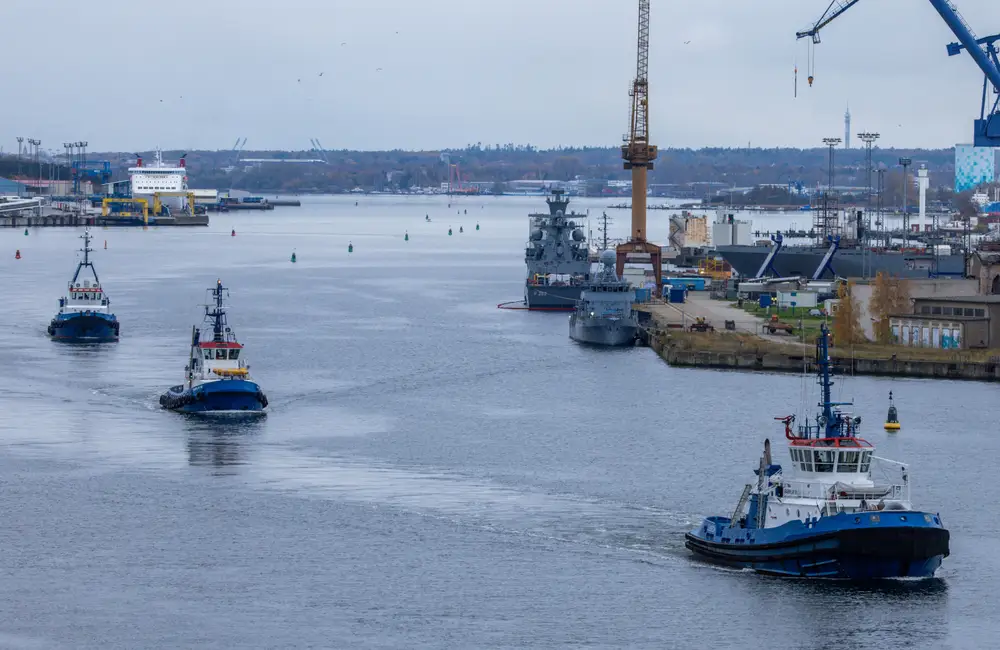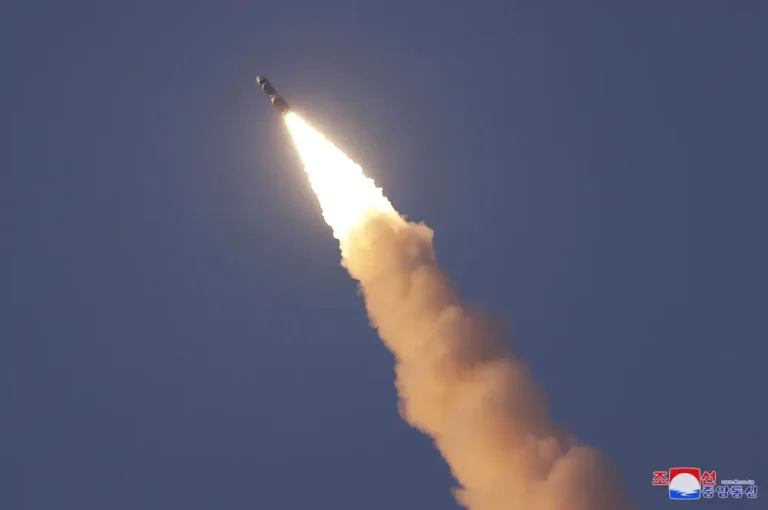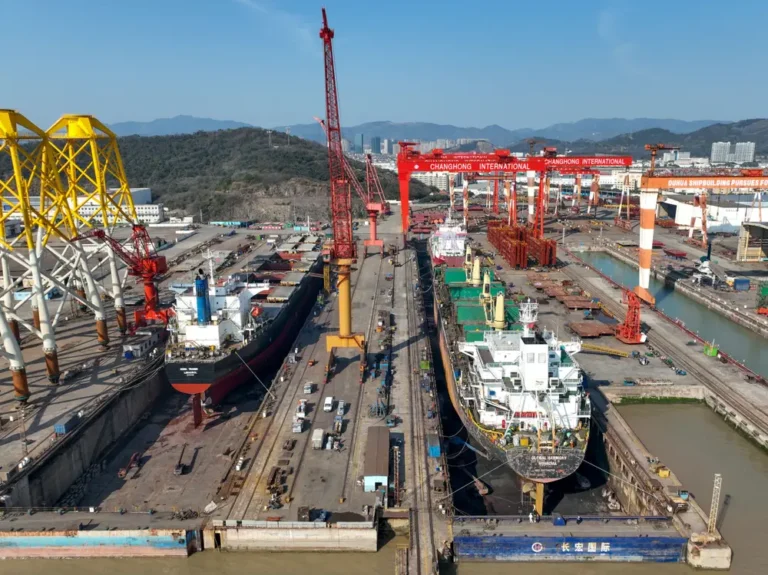A Chinese ship was near both subsea internet cables that were mysteriously cut, report says

A Chinese vessel (not pictured) was spotted in the Baltic Sea close to where internet cables were severed.
Sweden is investigating the sighting of a Chinese vessel near where two Baltic Sea internet cables were severed, the Financial Times reported.
The first cable — a 135-mile internet link between Lithuania and Sweden’s Gotland Island — stopped working on Sunday.
Later on Monday, a 730-mile cable carrying data between Germany and Finland was cut.
Boris Pistorius, Germany’s defense minister, said on Tuesday that it was being assumed that the two incidents were “caused by sabotage.”
“No one believes that the cables were accidentally damaged,” he said.
A joint statement by France, Italy, Germany, Poland, and Britain had previously suggested that Russia was involved. However, China is now also being investigated.
Yi Peng 3, a Chinese-registered cargo ship, was traveling from Russia to Egypt when it passed the two cables at around the same time each was cut on Sunday and Monday, according to Marine Traffic data obtained by FT.
The ship was then followed closely by the Danish Navy, open-source intelligence experts told the outlet.
The Danish defense ministry said it was “in the area near” the Chinese ship in a statement on X Wednesday, amid unconfirmed reports that Danish officials had boarded the vessel.
Erin Murphy, coauthor of a recent Center for Strategic and International Studies report on the threat to undersea cables, speculated that China may be working in tandem with Russia.
“There have been questions about China’s support or lack of opposition to Russia’s war in Ukraine but if intentional, this is an aggressive step by a China that typically operates in the Indo-Pacific region,” Murphy told B-17.
In 2023, a Chinese vessel was investigated after dragging its anchor and damaging gas and telecommunications lines in the Gulf of Finland. China cooperated with the investigation.
In a joint statement on Monday, the Foreign Ministers of Finland and Germany said they were “deeply concerned” about the incidents.
“The fact that such an incident immediately raises suspicions of intentional damage speaks volumes about the volatility of our times,” the statement said.
“A thorough investigation is underway. Our European security is not only under threat from Russia’s war of aggression against Ukraine, but also from hybrid warfare by malicious actors,” they added.
“Safeguarding our shared critical infrastructure is vital to our security and the resilience of our societies.”
The International Union of Marine Insurance estimates that repairing damaged cables usually costs between $7 and $12 million.
It comes amid tensions between the West and China over its support of Russia in the war against Ukraine.
Representatives for Sweden’s Ministry for Foreign Affairs, Marine Traffic, and China’s Embassy in the UK did not immediately respond to a request for comment from B-17.






